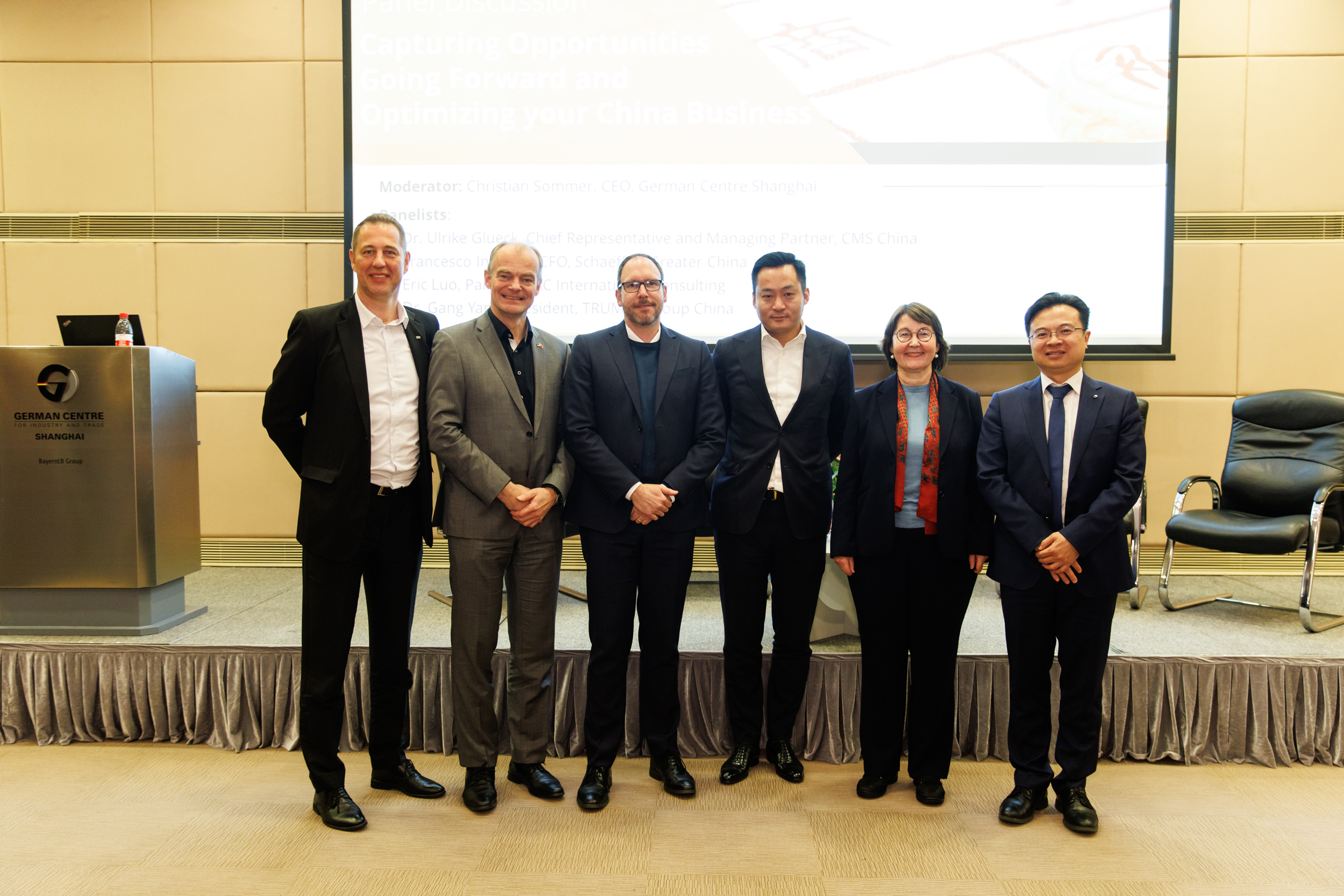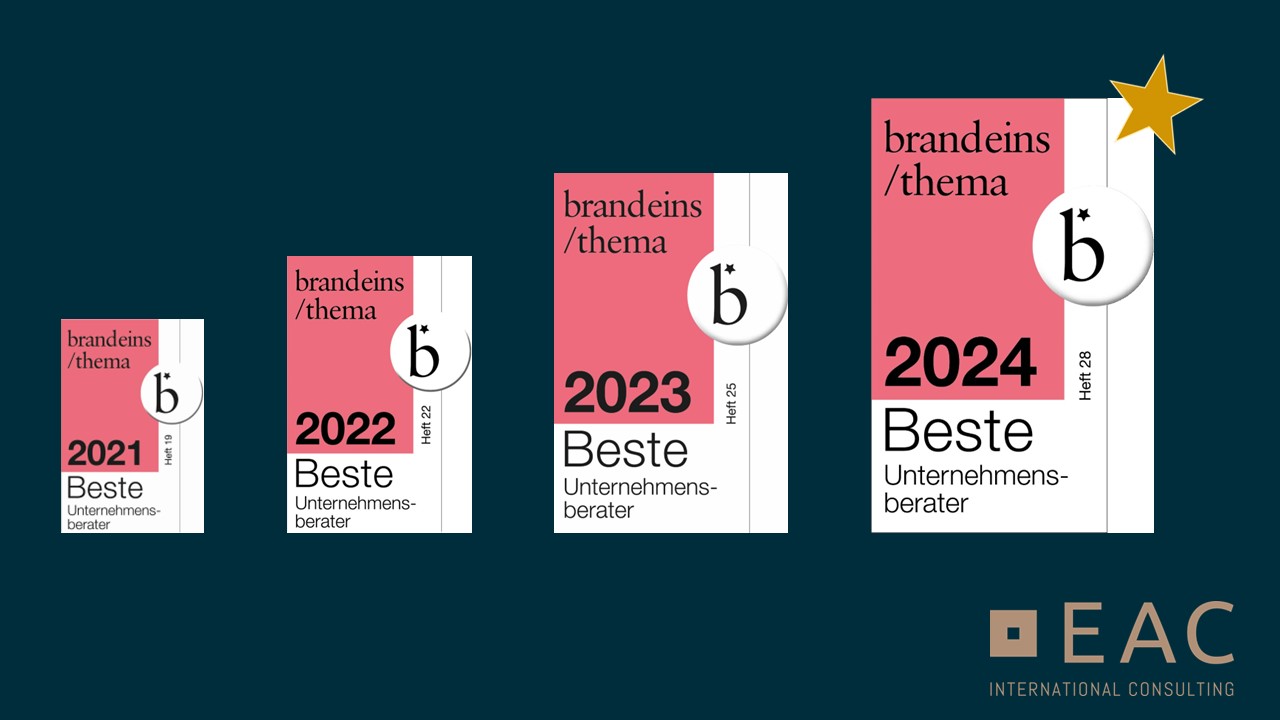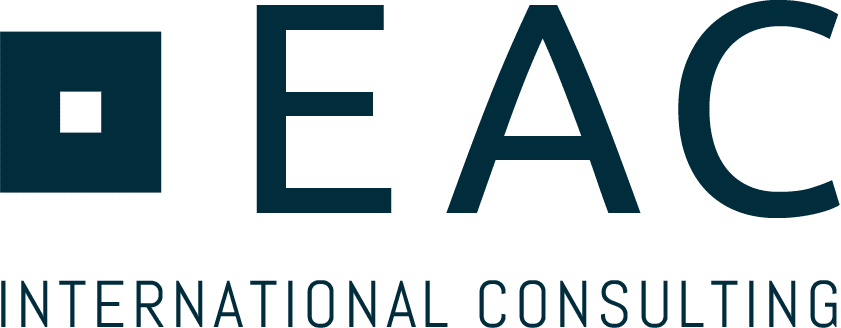Economic Insights by EAC Consulting – May 2020
China was economically impacted by COVID-19 on an unprecedented level in Q1, resulting in a quarterly GDP contraction of -6.8% YoY. Despite not unveiling a major stimulus program yet, the government has initiated countermeasures such as subsidy and support policies for SMEs, further investment liberalizations, pilot zones for cross-border e-commerce, or consumption vouchers. In April 2020, first indications of a recovery have become visible: the PMI bounced up, industrial output is back to normal, travel is increasing, and a growing number of companies are reporting a positive business trend and outlook. In this rapidly changing environment, European companies operating in China need to develop strategies to transform their business models in order to quickly adapt to the “new normal”.

Amid fallout from the coronavirus, in Q1 2020 China’s GDP fell by 6.8% year-on-year and 9.8% compared to Q4 2019 – the first quarterly GDP contraction for over 30 years. From January to March, almost all major economic indicators declined by double-digits, especially fixed asset investments and retail sales. In the same period Foreign Direct Investment fell 10.8% compared with a year earlier to 31 billion USD. Almost 500,000 Chinese firms shut down in the first quarter, including 26,000 in the export sector.
The central government and local authorities stepped in to support the economy, for example by granting tax relief measures, reviving subsidies for electric vehicles, liberalizing certain trade and investment restrictions, setting up 46 new dedicated zones for cross-border e-commerce, or by giving away billions of yuan in shopping vouchers. As a result of these measures and the re-opening of the economy, circumstances seem to have been improving since late March. Driven mostly by domestic demand, China’s Purchasing Manager’s Index returned to expansion territory, factory activity rose, the automotive market rebounded and consumers – though still cautious – seem to increase their spending again. For 2020 overall, analysts currently still expect a small GDP growth for China’s economy.
Foreign enterprises are starting to report a positive trend in their sales numbers, especially in the B2C segment: from Nike, Swatch, Louis Vuitton and Lego to Starbucks and Domino’s Pizza. Moreover, both Volkswagen and BMW stated that China sales in April were already above last year’s level. Two recent surveys seem to confirm this sentiment: Most US firms in China currently have no plans to relocate production to other parts of the country or abroad due to the coronavirus. And in the AHK Business Outlook 2020 survey among German companies worldwide, firms located in China are the most optimistic – with 50% currently having a stable or better economic outlook.
In this recovery phase, it is imperative for European companies to pro-actively transform their business models in order to quickly adapt to the post-COVID “new normal” market landscape in China. Only with rapid adaptation of digitization and forward-looking innovation strategies can they avoid losing market share and being left behind by competitors.
The central government and local authorities stepped in to support the economy, for example by granting tax relief measures, reviving subsidies for electric vehicles, liberalizing certain trade and investment restrictions, setting up 46 new dedicated zones for cross-border e-commerce, or by giving away billions of yuan in shopping vouchers. As a result of these measures and the re-opening of the economy, circumstances seem to have been improving since late March. Driven mostly by domestic demand, China’s Purchasing Manager’s Index returned to expansion territory, factory activity rose, the automotive market rebounded and consumers – though still cautious – seem to increase their spending again. For 2020 overall, analysts currently still expect a small GDP growth for China’s economy.
Foreign enterprises are starting to report a positive trend in their sales numbers, especially in the B2C segment: from Nike, Swatch, Louis Vuitton and Lego to Starbucks and Domino’s Pizza. Moreover, both Volkswagen and BMW stated that China sales in April were already above last year’s level. Two recent surveys seem to confirm this sentiment: Most US firms in China currently have no plans to relocate production to other parts of the country or abroad due to the coronavirus. And in the AHK Business Outlook 2020 survey among German companies worldwide, firms located in China are the most optimistic – with 50% currently having a stable or better economic outlook.
In this recovery phase, it is imperative for European companies to pro-actively transform their business models in order to quickly adapt to the post-COVID “new normal” market landscape in China. Only with rapid adaptation of digitization and forward-looking innovation strategies can they avoid losing market share and being left behind by competitors.
Download Article
Latest
April 4, 2024
Navigating the ‚New China Playbook‘: Insights from CMS-EAC Seminar

April 1, 2024
EAC – International Consulting: Four Years Running as „Best Management Consultants“

Februar 23, 2024
EAC – International Consulting Expands Global Presence with New Office Launch in New York

Dezember 20, 2023
Automechanika Shanghai 2023


